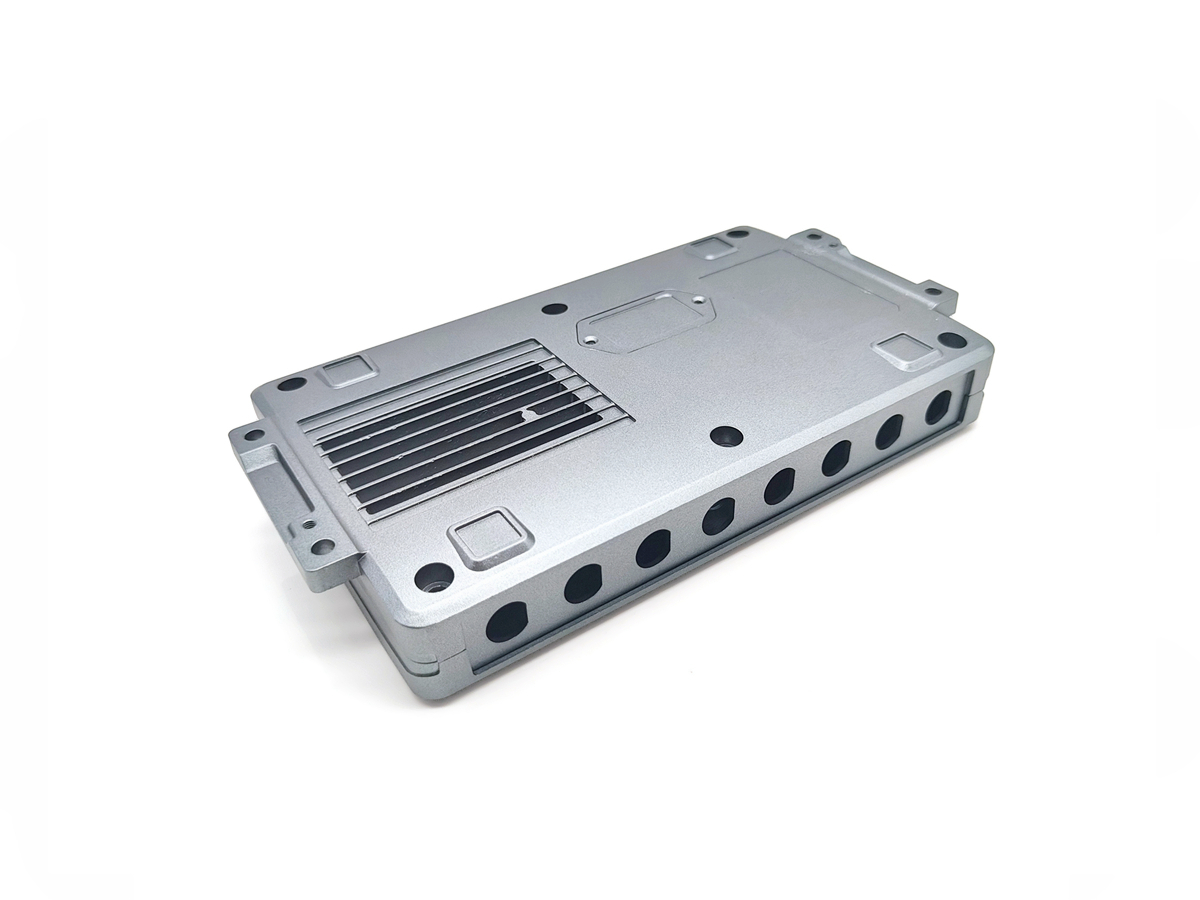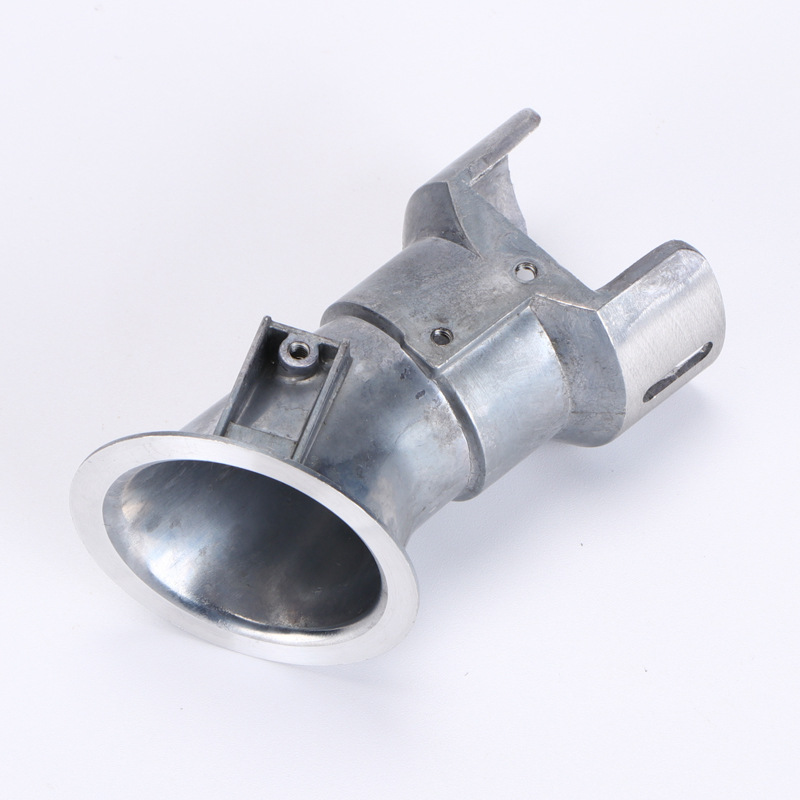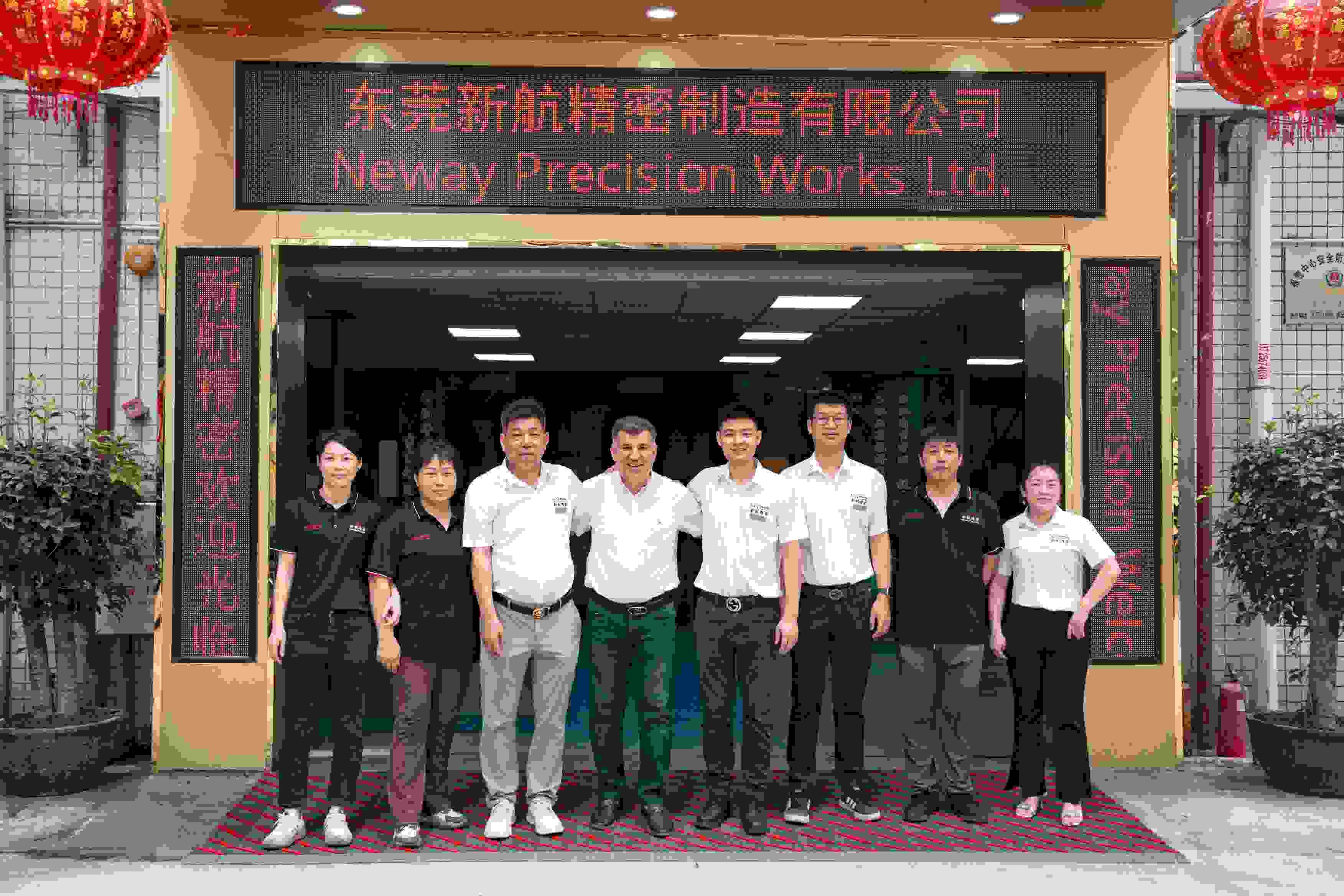AlZn10Si8Mg
AlSi12 aluminum alloy is a high-silicon, lightweight alloy known for its excellent casting characteristics, wear resistance, and dimensional stability. With a relatively high silicon content (12%), AlSi12 is commonly used for thin-walled components and precision casting where both high fluidity and wear resistance are required.
At Neway, we provide AlSi12 aluminum die casting services tailored to meet the needs of industries demanding high-performance, precision parts.
Key Characteristics of AlSi12 Aluminum Alloy
Property | Value (Typical, As-Cast) |
|---|---|
Density | 2.63 g/cm³ |
Ultimate Tensile Strength | ~240 MPa (34,800 psi) |
Yield Strength | ~140 MPa (20,300 psi) |
Elongation at Break | ~1.5% |
Thermal Conductivity | ~140 W/m·K |
Coefficient of Thermal Expansion | ~21.4 µm/m·°C |
Brinell Hardness | ~80 HB |
Corrosion Resistance | Excellent (good for marine environments) |
Fluidity Index | Excellent (ideal for thin-wall castings) |
AlSi12 is preferred in applications requiring superior casting fluidity, which allows it to be used in fragile sections and complex geometries. The alloy’s high silicon content also increases wear resistance and makes it highly suitable for mechanical applications subject to friction.
Description
AlSi12 is a high-silicon aluminum alloy, known for its excellent fluidity and wear resistance, ideal for precision and thin-walled die cast components.
Chemical Composition of AlSi12
Element | Composition (wt%) |
|---|---|
Silicon (Si) | 11.0 – 13.0 |
Copper (Cu) | ≤ 0.50 |
Magnesium (Mg) | ≤ 0.10 |
Iron (Fe) | ≤ 0.60 |
Manganese (Mn) | ≤ 0.50 |
Zinc (Zn) | ≤ 0.10 |
Nickel (Ni) | ≤ 0.50 |
Aluminum (Al) | Balance |
The high silicon content of AlSi12 improves the alloy's fluidity, reduces the shrinkage rate during solidification, and increases wear resistance, making it ideal for applications where precision and durability are paramount.
Mechanical Properties of AlSi12 Aluminum Alloy
AlSi12 is commonly used in castings where low elongation is acceptable in favor of enhanced wear resistance and dimensional accuracy.
Property | Value (As-Cast) |
|---|---|
Ultimate Tensile Strength | ~240 MPa (34,800 psi) |
Yield Strength (0.2% Offset) | ~140 MPa (20,300 psi) |
Elongation at Break | ~1.5% |
Fatigue Strength (10⁸ cycles) | ~100 MPa (14,500 psi) |
Modulus of Elasticity | ~70 GPa |
Brinell Hardness | ~80 HB |
The low elongation and high hardness of AlSi12 contribute to its excellent wear resistance, which is crucial in applications that involve friction, such as engine parts, pumps, and other machinery components.
Benefits of Using AlSi12 in Die Casting
Superior Castability: Excellent for thin-walled castings due to its high fluidity, making it ideal for complex or intricate shapes.
Wear Resistance: Silicon content improves wear resistance, especially in high-friction or abrasive applications.
Thermal Conductivity: Good for components requiring efficient heat dissipation, such as heat sinks and cooling devices.
Dimensional Accuracy: AlSi12 maintains high dimensional stability during solidification, minimizing shrinkage and distortion.
Corrosion Resistance: Performs well in outdoor and marine environments, offering atmospheric and saltwater corrosion resistance.
Typical Applications of AlSi12 Die Cast Parts
AlSi12’s superior fluidity and wear resistance make it the preferred choice for components that must withstand mechanical stress while maintaining tight tolerances.
Automotive: Engine blocks, transmission cases, piston heads, cylinder heads
Industrial Equipment: Gearboxes, hydraulic pump bodies, valve housings
Consumer Electronics: Heat sinks, enclosures for electronic equipment
Marine Equipment: Outboard motor parts, pump bodies, propeller housings
Aerospace: Precision castings for turbine blades, airframe components
Due to its high fluidity, AlSi12 is particularly effective in applications requiring thin walls and precise mold fills.
CNC Machining Considerations for AlSi12
While AlSi12 is relatively easy to machine, its high silicon content can increase tool wear. To mitigate this, proper tooling and cutting parameters must be used.
Machining Guidelines:
Tooling: Carbide or TiAlN-coated carbide tools should be used to reduce wear from silicon particles.
Cutting Speed: 150–350 m/min for milling, 80–150 m/min for drilling.
Feed Rate: 0.05–0.15 mm/rev, depending on tool size and feature depth.
Coolants: Use water-soluble coolants with high flow rates to ensure proper cooling and chip removal.
Surface Finish: Achievable Ra ≤ 1.6 µm, suitable for parts with functional or aesthetic requirements.
Tolerance: ±0.05 mm achievable on critical features.
Neway’s CNC machining services ensure precise post-casting processes, meeting strict tolerance and surface quality standards.
Surface Treatments for AlSi12 Parts
AlSi12 can be treated to enhance surface properties or improve durability:
Anodizing: Ideal for enhancing corrosion resistance and providing a decorative finish.
Powder Coating: Offers strong protection and custom color finishes for high-use parts.
Painting: Provides an additional layer of UV and environmental protection.
Tumbling: Used to deburr and smooth the surface before coating or assembly.
All finishes are tested for corrosion resistance and adhesion using industry-standard methods such as ASTM B117 (salt spray) and ISO 2409 (cross-cut adhesion).
Why Choose Neway for AlSi12 Die Casting?
Neway offers comprehensive aluminum die casting solutions for AlSi12 alloy, from design for manufacturability to low-volume manufacturing and high-volume production. With a focus on precision, repeatability, and material performance, we ensure that your AlSi12 parts meet the highest quality and durability standards.
FAQs:
How does AlSi12 compare to other aluminum alloys in terms of wear resistance?
Can AlSi12 parts be anodized effectively?
What applications benefit most from AlSi12's casting fluidity?
How does the silicon content of AlSi12 affect its machining characteristics?
What is the typical tolerance range for AlSi12 die cast parts?


